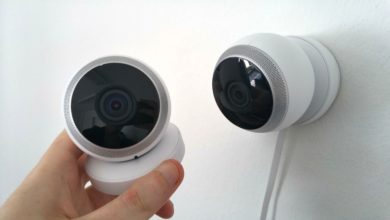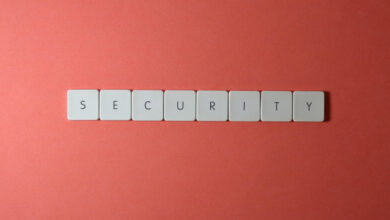How To Choose A Security Camera System For Your Home
KEY TAKEAWAYS
How to choose a security camera for your home? This is a question that needs to be answered before buying a home security system for renters or homeowners. In this article, we will discuss what to look for in a security camera to choose the best.
What to Look for in a Home Security Camera
Take a look at the features before buying a security camera.
- Motion Activation: A camera needs to start recording as soon as motion is detected and store that footage somewhere safe to be accessed. This technique, referred to by many companies with their variations of it, can provide peace of mind for those who need security in high traffic areas like an amusement park or busy downtown streets at rush hour.
- Smartphone Alerts: A good security camera must offer customizable alerts that are sent to a smartphone or tablet and also be able to send photos of what triggered the alert.
- Resolution: The excellent quality resolution camera records more details. Most of today’s cameras provide full high-definition (HD) video (1080p or 2 megapixels). Super High Definition and Ultra HD are increasingly popular as they produce clear and sharp images. For most people, Full HD will be fine, but if you want to zoom in on a person’s face or license plate, look for super/ultra HD with an 8x/12x digital lens.
- Night Vision: Outdoor cameras, especially those with night vision features, will need to have a range of at least 50 feet. Many high-quality models also come equipped with color night vision to cover distances as far as 300 feet away!
- Audio: With a built-in microphone, you can hear and see what’s going on. A speaker for two-way audio is an affordable upgrade so that the person who needs assistance will also be able to talk back through your camera in case of any questions or concerns.
- Storage: We believe that the best cameras are those with a storage option for your footage in the cloud. This means you have access to all of your images and videos on any device, anytime from anywhere!
- Field of View: The more comprehensive the field of view, the fewer cameras you will have to install. Look for a wide-angle lens that covers 130 – 180 degrees, so your property is well protected with just one or two devices!
- Design: You need your cameras to be noticeable enough for potential burglars and look attractive when mounted inside or outside.
- Privacy Features: If you’re concerned about privacy, look for a geofencing feature that will turn off your camera when the smartphone is in the house and back on again when it leaves.
- Security Features: If you’re concerned about privacy, look for a geofencing feature that will turn off your camera when the smartphone is in the house and back on again when it leaves.
FAQ’s
What should I look for when buying a security camera?
A good security camera should offer customizable alerts sent to a smartphone or tablet. The higher the quality of the resolution video it records, the more detail you’re going to see. Most of today’s cameras offer full high-definition (HD) video in 1080p and 2 megapixels for an optimal viewing experience.
What is the most accessible home security camera system to install?
The Abode iota is a DIY security system loaded with features, like the 1080p camera. It also comes with an emergency siren for peace of mind and support from many third-party devices such as Amazon Alexa or Google Assistant.
What’s the difference between surveillance cameras and security cameras?
Security cameras transfer signals from one place to a monitor situated at a distance. A surveillance camera is often combined with IP networks that link the device remotely and can be controlled by an assigned security location or another remote operation system.
Which is better, wired or wireless security cameras?
Wired cameras are a great solution if you have an inconsistent or unreliable Wi-Fi signal. Wireless signals do not extend very far – 300 feet at most without something to block the signal. Wired systems provide much more reliable connections, so they’re better for large properties with many coverage areas and locations that can be difficult to wire up in other ways.




